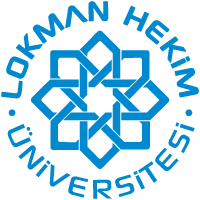| dc.description.abstract | Aim: Helicobacter pylori (H.pylori) eradication is still an important issue in countries with high antibiotic resistance. In this study, we aimed to compare the efficacy and safety of two bismuth-containing treatment modalities in H pylori treatment, in Turkey.
Material and method: Subjects with H pylori infection who were treated for the first time with either bismuth-containing quadruple therapy (pantoprazole 40 mg BID, tetracycline 500 mg QID, metronidazole 500 mg TID, bismuth subcitrate 262 mg QID daily) (BQT group) or modified quadruple therapy (pantoprazole 40 mg BID, amoxicillin 1 g BID, metronidazole 500 mg TID, bismuth subcitrate 262 mg QID daily) (MBQT group) for 14 days were compared retrospectively. The eradication success rate, adverse events related to the medications, and compliance were investigated.
Results: Totally 128 patients in the BQT group and 102 patients in the MBQT group completed the treatment. Intention to treat analysis revealed 81.69% (95 % CI: 75.9-88.1%) and 88.23% (95 % CI: 80.8-93.9%) in BQT group and MBQT group, respectively. Per protocol analysis revealed 90.62% (95 % CI: 85.5-95.7%) and 95.74% (95 % CI: 91.5-99.8%) in BQT group and MBQT group, respectively. The overall rate of adverse events was significantly more common in the BQT group compared with the MBQT group (39.4% vs. 18.6%; p:0.001). Among the adverse events, nausea-vomiting and abdominal discomfort were significantly more common in the BQT group than the MBQT group (p:0.001). The adverse events were mild-moderate in both groups and any life-threatening adverse event was not determined in any of the patients.
Conclusion: Both bismuth-containing treatment regimens, quadruple therapy and modified quadruple therapy were highly effective and safe in H. pylori eradication in Turkey. Adverse events were lower in the modified quadruple therapy group. Modified quadruple therapy should be kept in mind in H. Pylori first-line therapy in regions with high resistance of metronidazole and clarithromycin treatment. | en_US |















